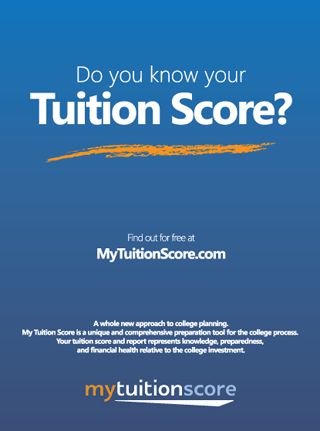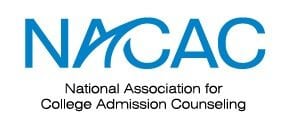 High school guidance counselors provide an invaluable service to students across America. These talented individuals help students chose an appropriate schedule, learn how to mature enough to attend college, juggle modern-day personal issues and collect college applications to send out to sometimes 10-20 colleges.
High school guidance counselors provide an invaluable service to students across America. These talented individuals help students chose an appropriate schedule, learn how to mature enough to attend college, juggle modern-day personal issues and collect college applications to send out to sometimes 10-20 colleges.
This is just a summary of what these counselors have on their plates, but it reveals one very important flaw: Guidance Counselors cannot possibly provide all of the information needed to help all of their students select the appropriate college.
If the college selection process could take place solely during the senior year and contained minimal steps, this may not be the case.
Unfortunately (or fortunately depending on one’s perspective of the importance of proper college selection), a successful college selection involves weighing out three paramount factors over multiple years of consideration.
The first factor that demands considerable time is determining the financial viability of a particular school. Four important questions must be asked first:
- How much is the total Cost of Attendance (COA) which includes not only tuition but room and board, books, transportation fees, etc?
- How much money does the school typically offer in need-based grants and scholarships?
- How much money does the school typically offer in merit-based aid and what are the requirements?
- When are the Free Application for Federal Student Aid (FAFSA) deadlines and what other financial aid forms are required?
Of course, understanding what the student/ family is eligible for is imperative to answering these questions and without the help of an expert in the field, these questions can’t be answered adequately until after the school provides a financial aid award offer (which occurs after acceptance).
It is alright to apply to a school or even multiple schools that appear out of range financially but not applying to at least one to three schools that are historically affordable is a major gamble. These answers cannot be determined overnight.
In addition to making sure the college list includes schools that are affordable, students need to feel comfortable socially and academically at the university.
Key academic questions that students need to ask include:
- Does the university have my major of interest (or a wide enough selection for undecided students)?
- Is the class size and student to faculty ratio a good fit for my learning style?
- Does the college within the university lend itself to graduating in four years?
- Is a minor and/or another major required for the college of interest within the university?
- Will I be able to parlay my experience into an internship(s) that will help me find a job after college?
- What kind of assistance does the school provide to help find a job after college?
On the other end of the spectrum, college is just as much about personal growth as it is about learning the academic skills necessary to succeed in a career.
In order for a comfortable, safe and happy experience, students must ask questions such as:
- How far away is the school from home and how accessible is transportation to return home?
- How many students attend the university and what are my living options during the first-year and subsequent years?
- Is the school in an urban, rural, suburban and/or “college town” setting and which suits my needs?
- Is violence a concern at the school and how are students protected in the dorms and off-campus?
- Does the university require living in a dorm for one year or multiple years?
- What kind of extracurricular activities and clubs are available to me at the university?
Last and certainly not least, each school has its own separate requirements and expectations for applicants that require careful planning and time.
All students are different academically and have different needs, if a student is looking at a higher end private university than the acceptance requirements are more stringent than at a public school.
Prior to the second semester (or third quarter) of junior year (at a minimum), students should be able to answer the following questions:
- Does the school require the SAT specifically, the ACT specifically or is either one acceptable (most schools allow either score to be submitted but not all schools)?
- Can subject test scores be submitted and if so how can these tests help with acceptance into the general student population or to an honors program? Which subject tests apply and which do not?
- Does the school give school credit for AP testing? What score is required to earn said credit?
- What factors does each school consider in terms of not just academics but extracurricular activities, community service, work experience, etc?
- What classes does the school require (mainly for unique schools that may require certain advanced courses or may require one less math or foreign language class than the majority of schools)?
Other questions need be answered as well, ideally during the junior year including:
- When is each school’s application available and what are the requirements?
- Can I (and should I) apply for an Early Decision or for Early Action? When is the deadline for each as well as the regular application?
- Does the school require an interview and if so, what kind of interview and when does this typically take place?
- When is a decision likely to be made if this information is available?
- When is a deposit due, to guarantee my spot is saved upon admittance?
If any of the above information does not make sense or requires further explanation, it is wise to seek help.
Starting with the high school guidance department is perfectly acceptable but understand that with all of their aforementioned responsibilities, getting these answers prior to senior year may be difficult.
It is not an indictment on counselors to understand that in today’s competitive college marketplace, one person or a few people can only do so much during the years prior to and including senior year when the application and selection processes commences and concludes.
Nearly every important and difficult decision made in life demands ample time and consideration; the college process just so happens to be one of the more time-consuming and critical decisions that a student and his/her family need to make.




